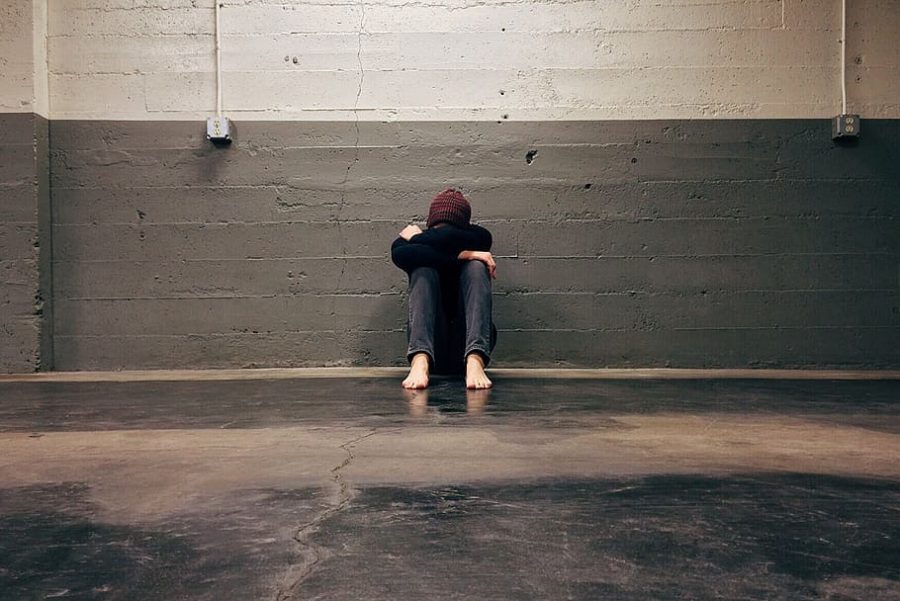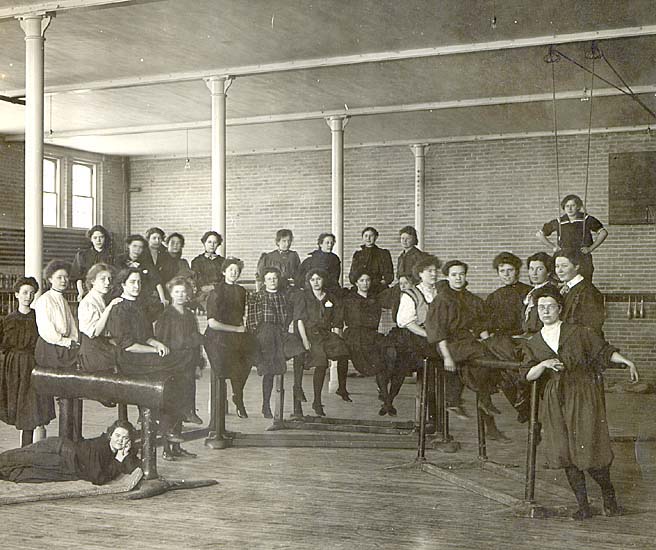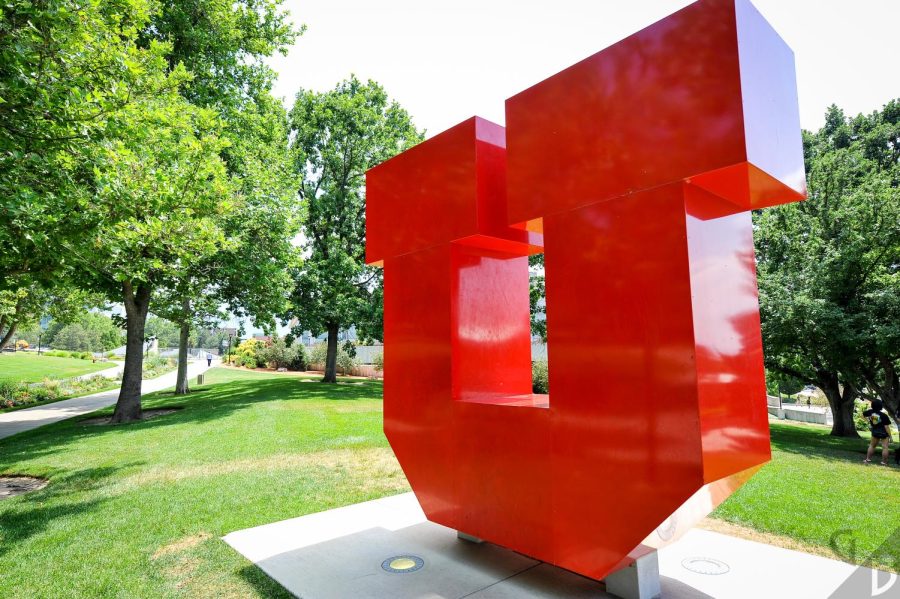Maxfield: Challenging How We Talk About Sexual Addiction in Utah
February 5, 2020
Why is it socially acceptable to say “I am an alcoholic” but repugnant to say “I am a sex addict”? It is because sexual addiction is confusing and often misunderstood whereas in alcoholism there is clarity: both alcoholic and sober have explicit meanings. In Utah, admitting to being an alcoholic dovetails nicely with the stance of the religious majority that drinking alcohol is wrong, lowering the overall shame and social stigma that these people face.
There is neither such clarity nor any buffer for those who suffer from sexual addiction. For them, shame and confusion are constant companions. Scholars and mental health professionals have argued for years whether sexual addiction is even a mental health condition. If that isn’t confusing enough, competing definitions of sexual sobriety further cloud the issue.
While only one Alcoholics Anonymous program exists (with one definition of sobriety), many sexual addiction recovery programs exist with multiple, competing definitions of sexual sobriety. Twelve-step organizations include Sexaholics Anonymous, Sex Addicts Anonymous, Sexual Compulsives Anonymous, Sex and Love Addicts Anonymous and Sexual Recovery Anonymous. Less well-known is Sexaholics Anonymous Lifeline, a 2008 offshoot of SA headquartered here in Utah.
Although it frequently and wrongfully happens in Utah, sexual addiction cannot simply be dismissed as a moral failing. It is an impulse control disorder that requires specialized professional counseling to achieve sobriety and is usually coupled with participation in a 12-step recovery program.
Addicts are often shamed and blamed by those closest to them for having this disorder, making a difficult subject increasingly harder to talk about. Sexual addiction is brutally painful to navigate, often more so than other addictions, because addicts frequently break trust and violate the agreed-upon boundaries of intimate relationships. Speaking from experience, you absolutely cannot predict how you will react to this kind of betrayal. While it’s common for partners and close family members to respond with shame and blame, these are unhelpful and ruthlessly unkind reactions that shut down communication and disrupt potential relational healing.
Not a sex addict? Good for you. But this does not mean you are a better person. It means you have different life struggles. Still, you should learn about it and help change how we talk about it in Utah. Accepting that sexual addiction exists and talking about it does not mean you endorse the bad decisions addicts make in the throes of their addiction — it means you’re real. Healing is attainable. Addicts can find sobriety and embrace the life they long for, and, although scarred, partners can heal from betrayal trauma. Intimate relationships can survive and become stronger.
We can and must change how we talk about sexual addiction in Utah. Ignoring it out of fear or embarrassment will not banish the disorder from our midst. Recent changes in disease classification will serve to shift public, private and professional conversations away from arguments over whether or not it is a legitimate disorder and towards discussions over how to help people who struggle with it. In June 2018, the inclusion of compulsive sexual behavior disorder to the International Classification of Diseases was proposed by the World Health Organization and agreed upon by member states. This diagnostic change becomes effective Jan. 1, 2022 and will validate the challenges many addicts face, increase the intensity of scholarly research and encourage more vulnerable social discussions about the issues surrounding sexual addiction.
If you live in Utah and want to talk openly about your sexual addiction, brace yourself for pursed lips, somber frowns and squinty eyes — people will react as if talking about the disorder makes it contagious. While avoiding the topic altogether might make us all feel purer, doing so feeds its social stigma. On the other hand, talking about it raises awareness, reducing its shame and stigma.
Some Utahns are doing just this. Kudos to radio personality, Casey Scott, and University of Utah assistant professor, Dr. Matt Woolley, for co-hosting KSL’s new podcast, “Project Recovery,” which invites open discussions about addiction. Similarly, the “UnashamedUnafraid” podcast features intensely personal stories (several by Utahns) bravely shared in the hopes of helping others.
Utah needs less censored sharing and more emotionally honest conversations about sexual addiction. It is a widespread condition, and those who struggle with it deserve the opportunity to work through recovery transparently with our compassion, not our condescension or condemnation.
Recently, while talking with a local sex-addiction therapist, I was shocked to learn their clinic experiences predictable spikes, twice each year. If you have guessed, as I did, that one of these spikes occurs at the turn of the new year, then we are wrong together. Instead, these triggering events are the semi-annual conference sessions held by The Church of Jesus Christ of Latter-day Saints.
Because sexual addiction is an impulse control disorder, it cannot be “fixed” by one’s efforts to adhere to a strict moral code, but failure to conform to the church’s moral code equates to “moral failure” for many. Until the distinction between moral failure and impulse control disorder is made clear to church members by church leaders, member-addicts will continue to have one shame-filled experience after another in a church where striving for (and often lying about) perfection is the status quo.
Sexual addiction is a latter-day crisis that many males and an increasing number of females struggle to overcome. Like alcoholism, sobriety from sexual addiction is possible. I can’t help but wonder: how many among us are living dual lives, entangled in sexual addiction, yearning for a life of authenticity and acceptance? I believe the number is much greater than we might guess. So, be the change. Challenge the status quo. Learn about sexual addiction and start talking about it. The chances are high that it will touch your life someday. Become informed, learn to spot the signs, and for the love of all that is human and good in this world — learn how to talk about it kindly and compassionately.








Devin Peterson • Feb 10, 2020 at 2:46 pm
I love the invitation to speak about this topic and learn how to talk kindly and compassionately about it to those struggling.
Cultural shame is real and a strong barrier to recovery for all of us. I do feel that positive changes have been happening and as soon as we all are willing to be comfortable in our imperfections instead of “striving for (and often lying about) perfection [as] the status quo “ we will gain progress towards healing as a society.
Thank you Lynda for the wonderful article.
James Willhite • Feb 7, 2020 at 7:12 am
Thanks for this article! This is the kind of dialogue we need a lot more of. Too many are trapped in pain, hiding, and isolation. Bringing this into the light gives others the courage to seek help and healing.
James Burnham • Feb 6, 2020 at 4:12 pm
Love this article. My life has greatly improved since dealing with my sexual addiction. The shame if it within the Mormon church is so great I’ve had to leave. It is not the only reason I chose to leave but a significant one. I need to connect with a spiritual group that does not look upon me with such distaste. I’ve found that recovery groups are much safer for me than the artificial concerns the Mormon church talks about like R rated movies, drinking coffee, alcohol, or for some even Coke. Granted they do address important topics however not in an informed or non shaming way.
Chris Bennett • Feb 6, 2020 at 3:49 pm
I am a co-host on the UnashamedUnafraid podcast and absolutely love this article. Not because you mentioned us (thanks though), but because it definitely needs to be talked about and talked about in a different way. I think that has been a huge part of my recovery is being open about my addiction because my wife and I speak a lot about our story. It has blessed our lives to de-shame the whole thing because shame lives in isolation. Being open about it has blessed others by providing hope that recovery is real and sobriety is real. Love your article and I’m definitely sharing with everyone.
Jason • Feb 6, 2020 at 3:30 pm
Yes!!! Thank you so much for this article.
“ Until the distinction between moral failure and impulse control disorder is made clear to church members by church leaders, member-addicts will continue to have one shame-filled experience after another in a church where striving for (and often lying about) perfection is the status quo.”
So true.
Also, thanks so much for mentioning Unashamed Unafraid. We’ve been working hard to bring this kind of thinking into the forefront of recovery circles.
Steven Petroff • Feb 6, 2020 at 3:26 pm
As a recovering sex addict, I really appreciate this line, “Not a sex addict? Good for you. But this does not mean you are a better person. It means you have different life struggles.” One help for me in understanding my behaviors was digging deep to the cause of my behaviors. Someone else may choose food, alcohol, work, or whatever. I chose sex as my soothing method for unmanageable emotions. It takes additional tools and trauma work to be truly sober, not just controlling behaviors. Super glad this conversation is happening!
CT • Feb 6, 2020 at 3:25 pm
Thank you! I am a part of the UnashamedUnafraid (UU) Crew. I love this article because it brings to light the physiological study of sex addiction. As I have worked alongside such amazing men, I have found strength in knowing that we battle an enemy that knows us through and through. It is only because of the help of my Savior Jesus Christ, my therapist, my Beautiful Bride and men like those you hear on our podcast that I am here. When you get your story in the light, the adversary has no power over you anymore. And having the support of family (Christ, BandofBrothers and my wife) do I find it to take another 24 each day. I totally understand why every six months there is an influx of new/existing patients, there is so much shame around this subject that is so toxic and debilitating that the only response for addicts is to isolate and act out.
Thank you again for this article. I hope people read your words and reflect on them.